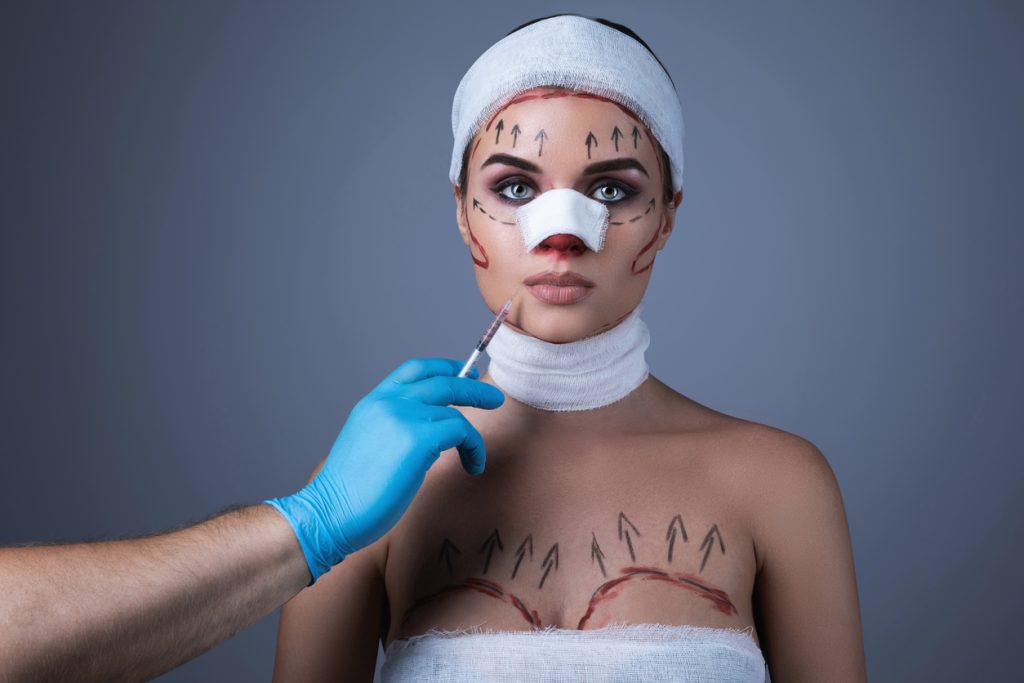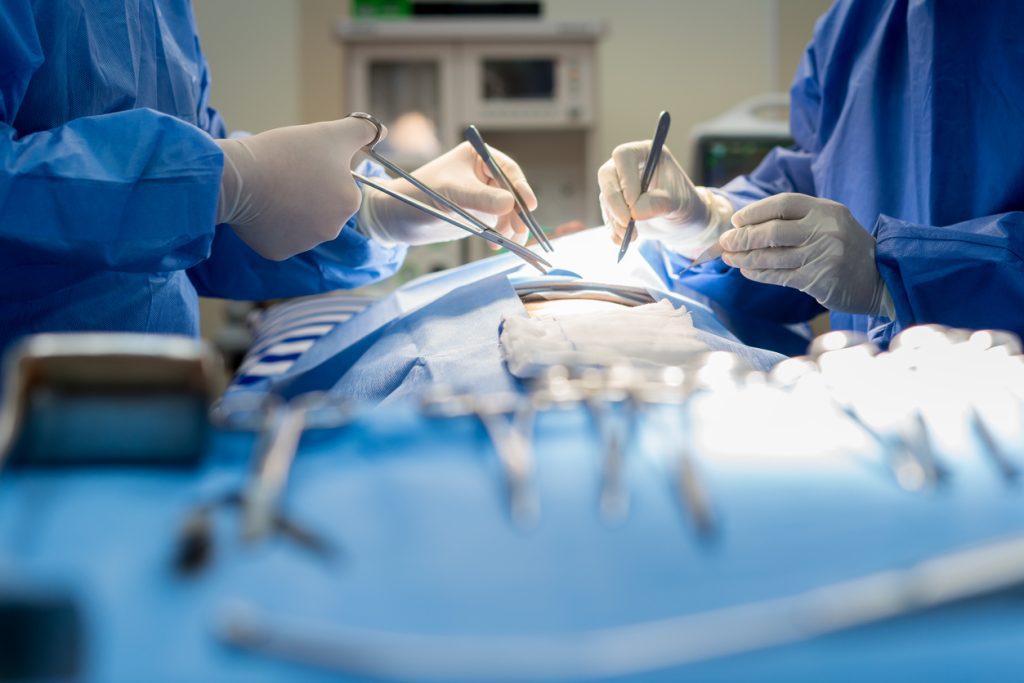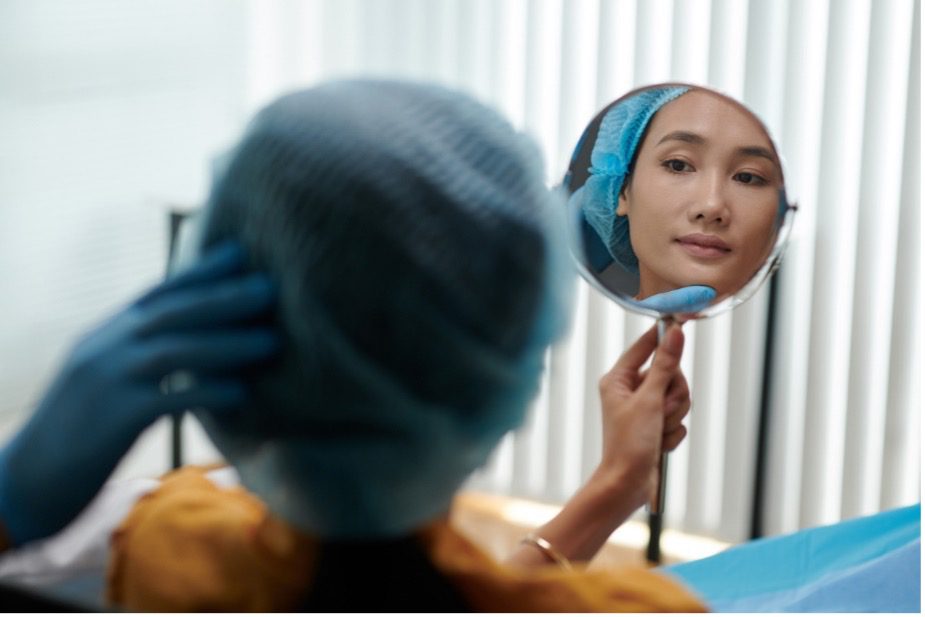Our Clinic in Guernsey
Albert House
South Esplanade
St. Peter Port
Guernsey
GY1 1AW
Tel: 01481 736699
Fax: 01481 736688
View on Map
If you require further information about any of our treatments, our medical team, or availability of appointments, please do not hesitate to contact us by telephone, email or simply by filling out the contact form.
Albert House
South Esplanade
St. Peter Port
Guernsey
GY1 1AW
Tel: 01481 736699
Fax: 01481 736688
View on Map
Operating across the Channel Islands and in the UK, the Aesthetic Skin Clinic (ASC) is a trusted, leading name within the medical aesthetic industry. Our cosmetic clinics are located in Jersey and Guernsey, as well as Belfast, Northern Ireland.
Albert House
South Esplanade
St. Peter Port
Guernsey
GY1 1AW
Tel: 01481 736699
Fax: 01481 736688
View on Map
Find out more
Updated in May 2024
Cosmetic surgery has often been a controversial subject in the media. With many people in the limelight shamed for botched jobs or too many improvements, others feel embarrassed when admitting to having had plastic surgery. Despite this, over the years, there has been a rise in interest in cosmetic treatments, and with the help of ITV2’s Love Island, it now receives much more positive press.

However, this has not stopped the public’s interest in surgery that has gone wrong. Whether it’s too much filler, a breast implant gone wrong, or unnatural-looking anti-wrinkle injections – people are curious about the complications and unfortunate results of others receiving cosmetic treatment from unreputable clinics.
In today’s blog, we’re looking into why, as humans, we are so fascinated with the idea of botched plastic surgery. We’re also exploring where this interest originated and how various media have influenced it over time.
Interest in “body horror” can be dated back to the early 19th century when the novel Frankenstein was published. Written in 1817 by Mary Shelley, the book details how scientist Victor Frankenstein used various corpses to create an artificial man. From then on, the body horror genre took off, with many other authors using a similar premise, such as George Langelaan in 1957 with The Fly. But how is that connected to aesthetic treatments? Well, these fictional body horror stories shocked and entertained readers, much like the reactions of real-life body horrors in plastic surgery that have gone wrong.

Gossip magazines provided us with one of the first real-life looks into botched plastic surgery we had seen. Publications such as ‘Heat’ gave us ‘the circle of shame’, where journalists would scrutinise celebrities for breast implant mishaps, tummy tuck scars, and other evidence of surgeries that had gone wrong. Because this was a new insight into the world of cosmetic treatments, people were fascinated, and it only fuelled other media formats, such as TV or, more recently, social media, to follow the trend.
With the rise of reality TV came a sub-genre often referred to as car crash TV – television made to be controversial and shocking, but also, at the same time, it became something that draws viewers in and leaves them unable to stop watching. For example, several television shows have depicted plastic surgery incidents, such as ‘Plastic Surgery Knifemares’ on Channel 5 and ‘When Plastic Surgery Goes Wrong’ on BBC One.
The old ‘Botched’, which premiered on E! in 2014, gave us a different perspective on plastic surgery mishaps. We follow Terry Dubrow and Paul Nassif, experienced cosmetic surgery doctors, as they “remedy extreme plastic surgeries gone wrong”. The show finally highlights the importance of visiting a reputable clinic rather than portraying cosmetic surgeries in a negative light and shaming people for using them.
In more recent years, reality shows like ‘Love Island’ are often at the centre of the plastic surgery discussion, as contestants have been known to improve their looks through cosmetic procedures. One example is Megan Barton Hanson, a participant from the 2018 season, who openly admitted her regret regarding multiple plastic surgeries she had when she was only 19. Similarly, Laura Anderson, from the same season, has talked about the complications she faced after breast augmentation, stressing the importance of being fully informed before deciding on any procedure and choosing the right place to do it. These reality stars’ experiences underline the risks of getting procedures done without adequate research and the need to always opt for a reputable and experienced practitioner.

Social media has had a significant impact on how we view cosmetic surgery. Many celebrities reveal on their Instagram and Twitter accounts that they are no longer interested in the artificial look that unreputable clinics provide. In addition, reality TV stars such as Molly-Mae Hauge and Faye Winter have taken their followers on a journey to becoming more natural. Pamela Anderson is another one who prefers a more natural look and recently showed up with almost no makeup on the red carpet. However, this doesn’t mean ditching the dermal fillers altogether; it just means that the days of dangerously overfilled lips are long gone.
TikTok, the fast-growing social media platform, has played a unique role in shifting perceptions of cosmetic surgery and treatments, thanks to dedicated areas such as SkinTok. With hashtags like ‘#plasticsurgerygonewrong’, users share jaw-dropping stories of surgeries that did not turn out as expected, often leading to health issues and mental distress. This led to an increase in awareness about the possible mishaps of rushing into cosmetic procedures without proper homework. Much like Instagram and Twitter influencers, TikTokers now preach the importance of choosing certified professionals over quick, cheap options. Their advice? It’s simple: safety and your well-being over aesthetics.

Being exposed to such negative depictions of cosmetic surgery can seriously affect how we view aesthetic procedures. People interested in receiving treatments to tackle a personal area of concern on their body could be put off after watching one of the TV shows mentioned above.
However, the way we feel about cosmetic surgery is starting to change. Just a few years back, the talk around these procedures was mostly negative, focusing only on the mishaps. Now, there’s a growing movement of awareness. Stars and influencers are more open about their own experiences. They don’t say that getting surgery or treatments is wrong anymore; instead, they stress how important it is to go to someone who really knows what they’re doing. Because of them, people are starting to see that it’s okay to want to change something about your appearance as long as you’re careful and informed. This shift is making people less scared of seeking treatment because they’re learning how to do it the right way.
If you’re interested in receiving dermal fillers in Jersey and Guernsey or any facial treatments, such as tear trough or facelift, you must visit a reputable clinic, such as Aesthetic Skin Clinic. We are medical professionals with years of experience and knowledge, so we will guide you through the process step-by-step with professional care and treatment. We take pride in the care we provide for our patients, so from the minute you book your consultation to long after your downtime, we will be there for you. If you have any questions or would like to enquire about our treatments, we will go above and beyond to make you feel comfortable.
You will discuss your treatment beforehand during a discreet consultation, during which we will provide medical advice on what we recommend. Please don’t hesitate to get in touch with our team—we are more than happy to help.
No Related Articles Found




